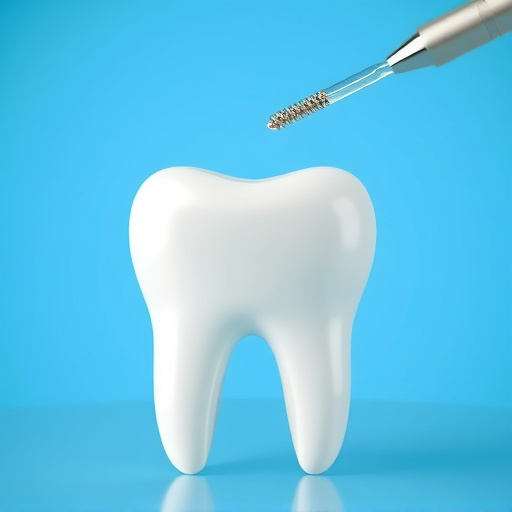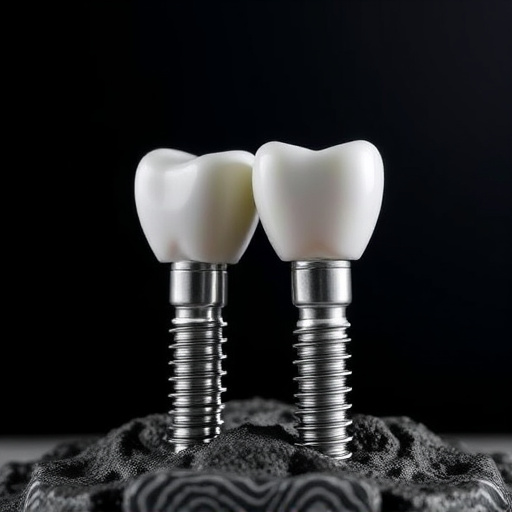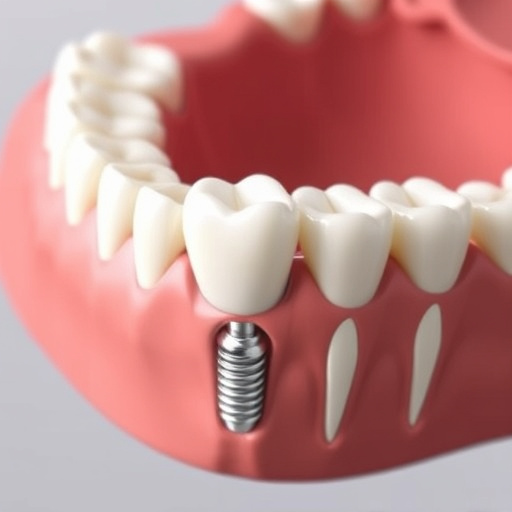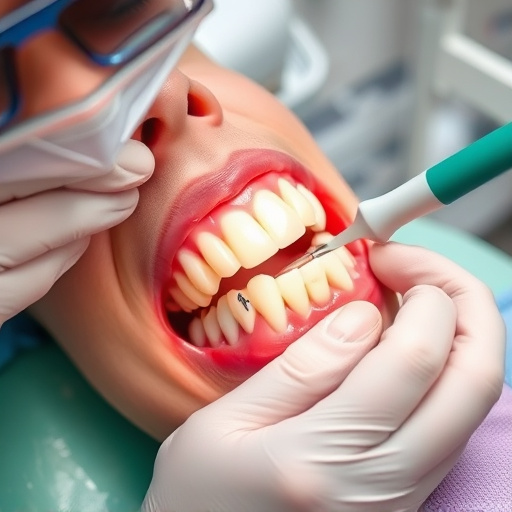Single tooth implants offer permanent, natural-looking solutions for missing teeth, requiring healthy gums and robust jawbone structure. Expert dental care, including assessments and emergency treatments, bone grafting if needed, and proper oral hygiene are crucial for success. Implants need optimal initial conditions for osseointegration and long-term durability.
Single tooth implants offer a permanent solution for replacing missing teeth, providing both functional and aesthetic benefits. However, achieving successful integration requires healthy gums and robust bone support. This comprehensive overview delves into understanding single tooth implants, while exploring the critical role of gum and bone health in ensuring stability and longevity of these advanced dental solutions.
- Understanding Single Tooth Implants: A Comprehensive Overview
- Healthy Gums and Bone Structure: The Foundation for Success
- Factors Affecting Implant Stability and Longevity
Understanding Single Tooth Implants: A Comprehensive Overview

Single tooth implants are a popular choice for replacing missing teeth, offering a permanent and natural-looking solution. Unlike traditional bridges or dentures, which rely on adjacent teeth for support, single tooth implants are surgically placed directly into the jawbone to mimic the structure of a natural tooth root. This innovative approach provides exceptional stability and comfort for patients.
Understanding this procedure involves grasping the science behind osseointegration, where the implant fuses with the bone over time. This process ensures a strong foundation for the replacement tooth, whether it’s a crown, bridge, or denture. Seeking expert advice from dental professionals who specialize in implant dentistry is crucial when considering single tooth implants. They can guide patients through the process, starting with an evaluation of oral health, including gum and bone conditions, often requiring emergency dental care if needed, such as tooth extractions or addressing decayed teeth with dental fillings before implantation.
Healthy Gums and Bone Structure: The Foundation for Success

Healthy gums and sufficient bone structure are the cornerstone for successful single tooth implants. When considering dental implants, it’s crucial to assess the overall health of your gum tissue and jawbone. Healthy gums provide a stable environment for the implant to integrate with bone, ensuring long-term success. Regular routine oral exams can help identify any gum issues or signs of deterioration early on, allowing for prompt intervention.
Moreover, robust bone support is vital for the longevity of implants. Bone provides structural integrity and serves as an anchor for the artificial tooth. In cases where there has been bone loss due to missing teeth or other dental conditions, specific procedures like bone grafting may be recommended prior to implant placement. This restores the necessary bone volume, creating a solid foundation for the single tooth implants and ensuring their stability and functionality.
Factors Affecting Implant Stability and Longevity

The stability and longevity of single tooth implants heavily depend on several factors. Healthy gums are paramount; they provide a robust foundation for the implant’s screw or post, which is crucial for long-term success. Adequate bone density and volume in the jawbone are also essential. Bone support ensures the implant has secure anchorage, allowing it to withstand chewing forces without shifting or moving.
Other considerations include oral hygiene practices, such as regular teeth cleaning, which prevent gum disease and maintain the overall health of the mouth. Unlike dental bonding or crowns that can cover up issues, implants require a healthy starting point. This is why proper care and maintenance are vital for the successful integration and long-term functionality of single tooth implants.
Single tooth implants offer a durable solution for replacing missing teeth, but their success hinges on healthy gums and bone support. Understanding the foundational requirements ensures optimal stability and longevity of these advanced dental restorations. By addressing factors like gum health and bone density prior to placement, patients can achieve long-lasting, functional, and aesthetically pleasing single tooth implant replacements.














